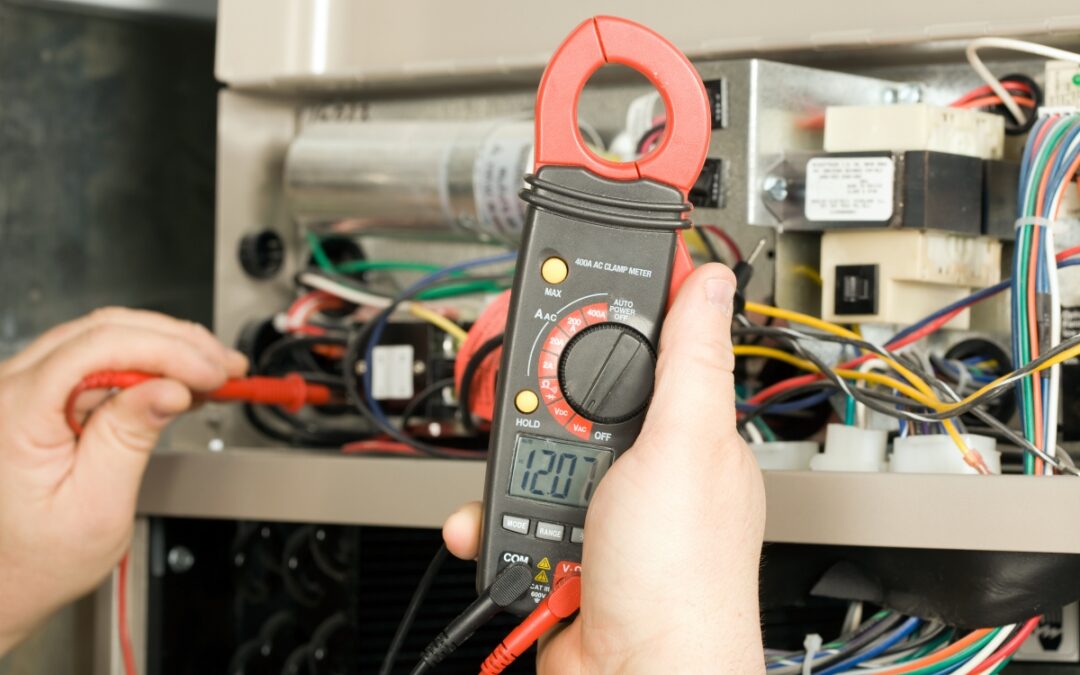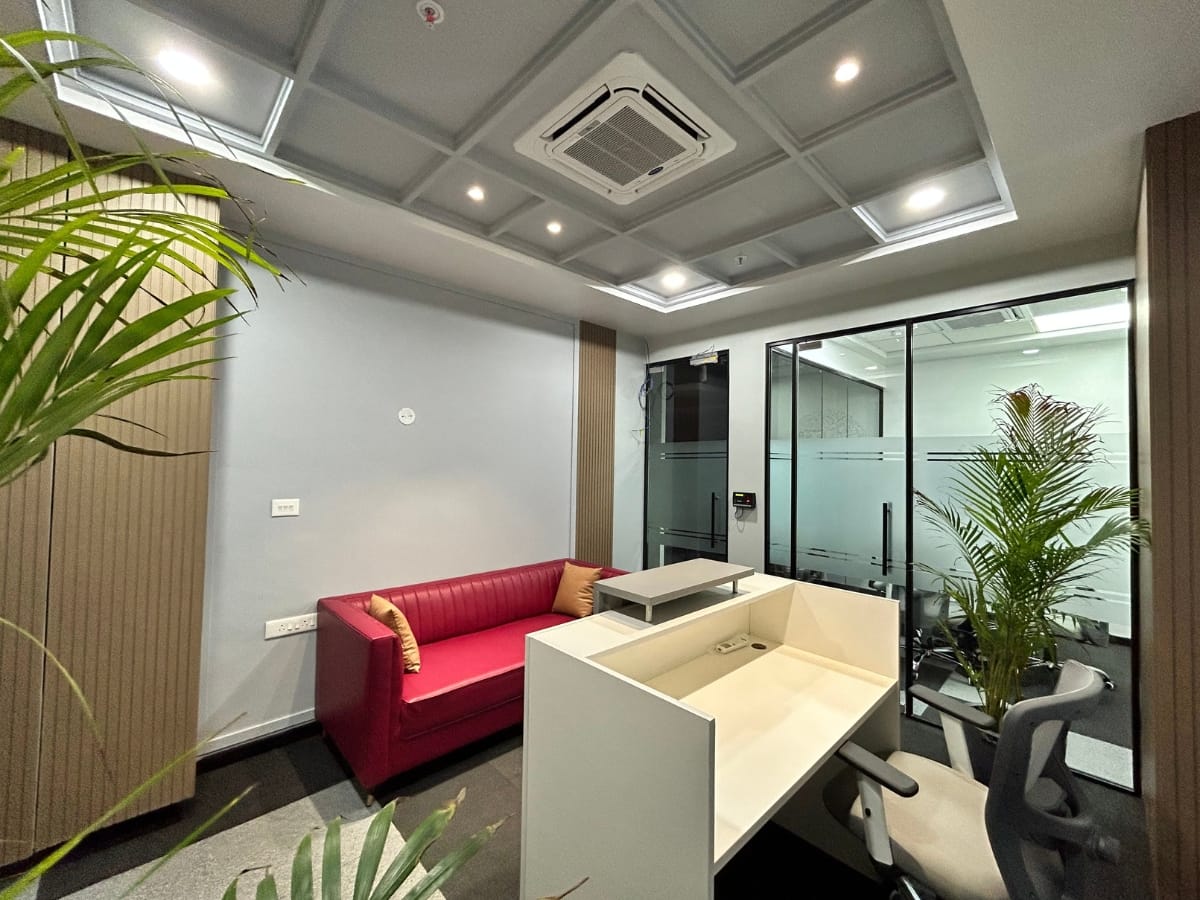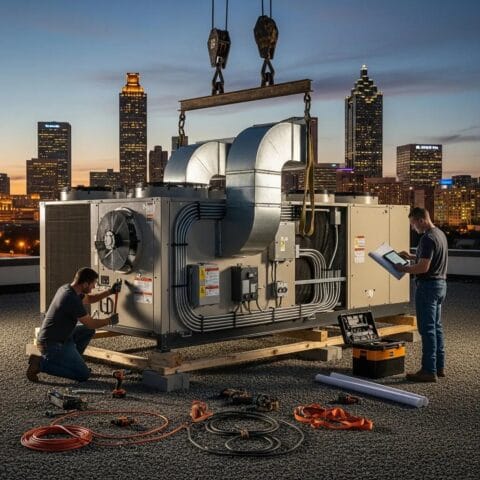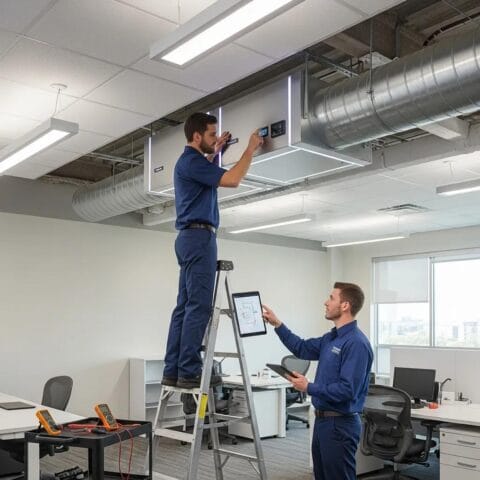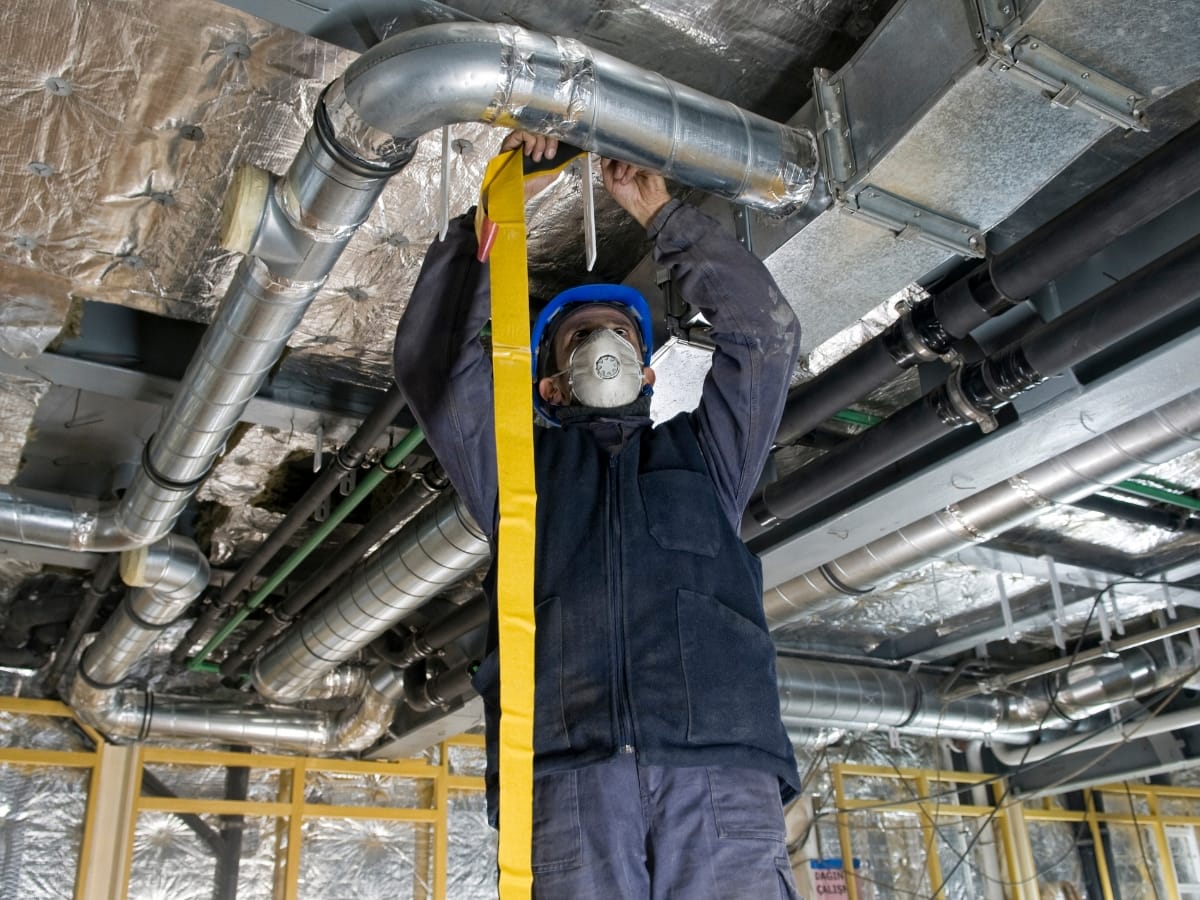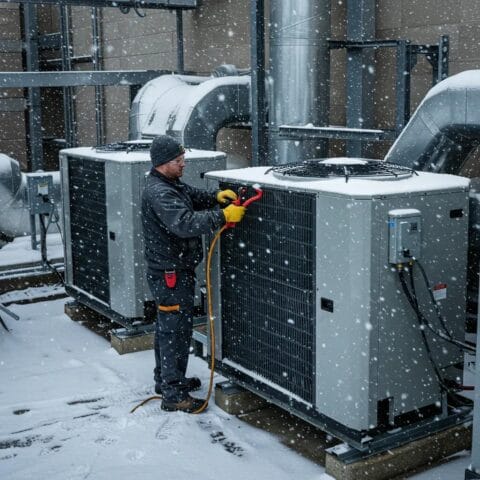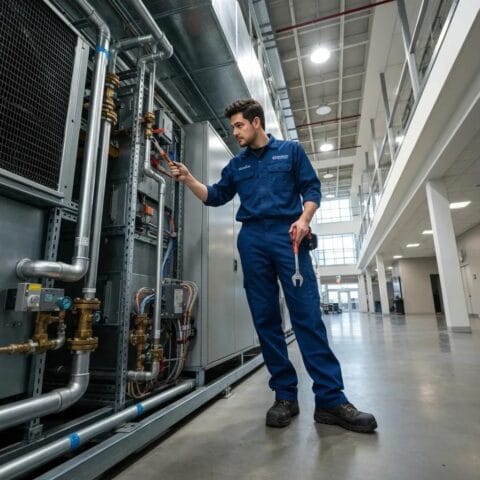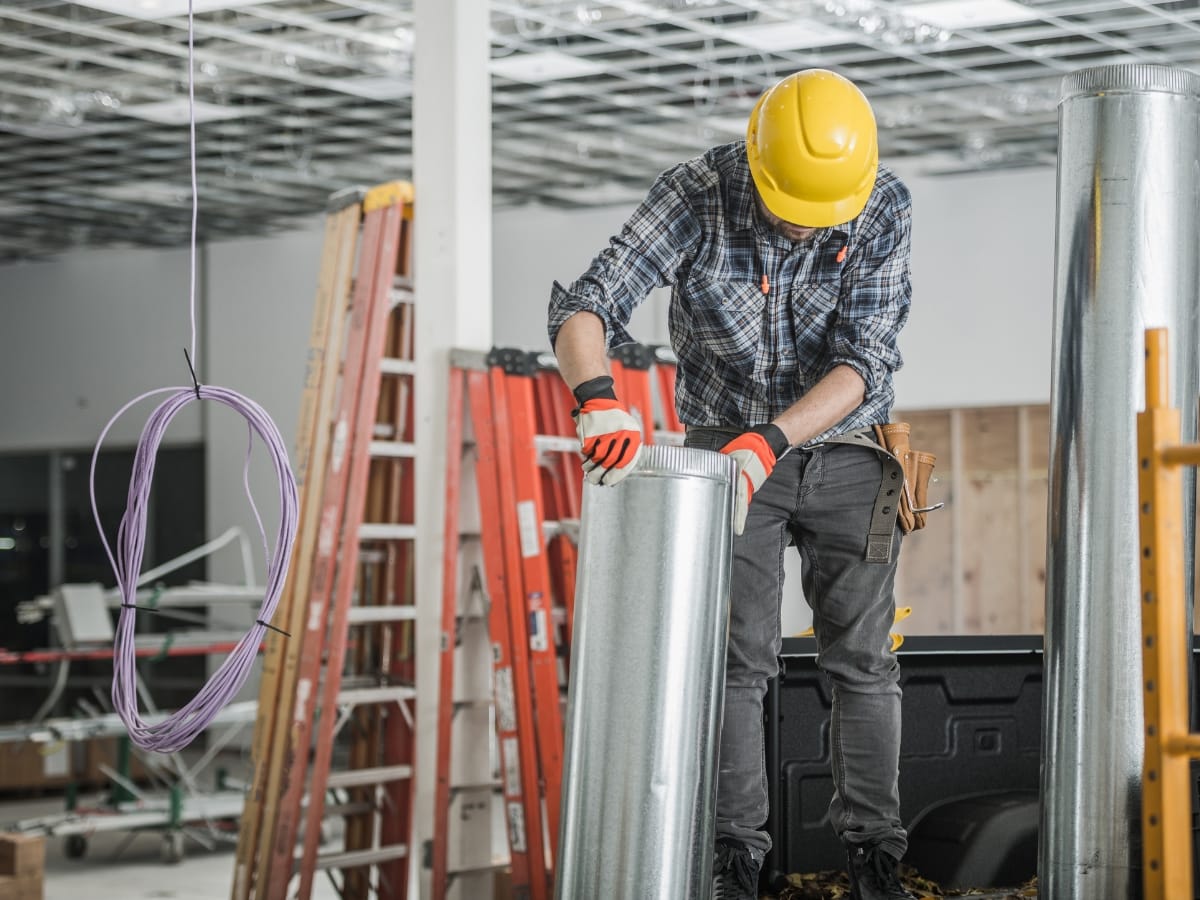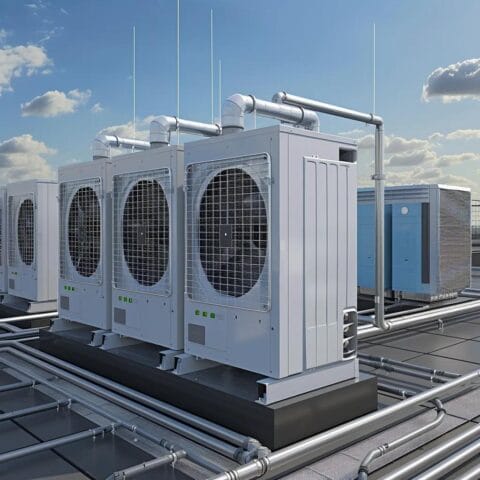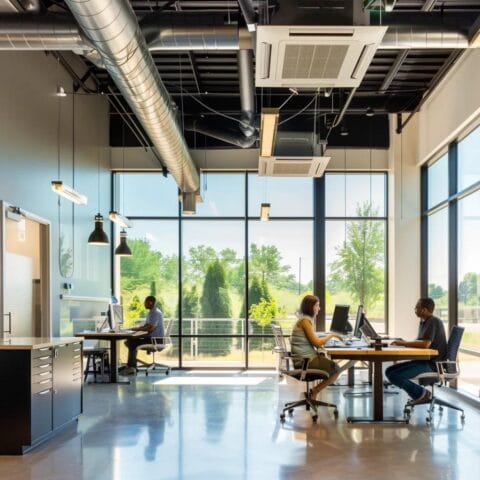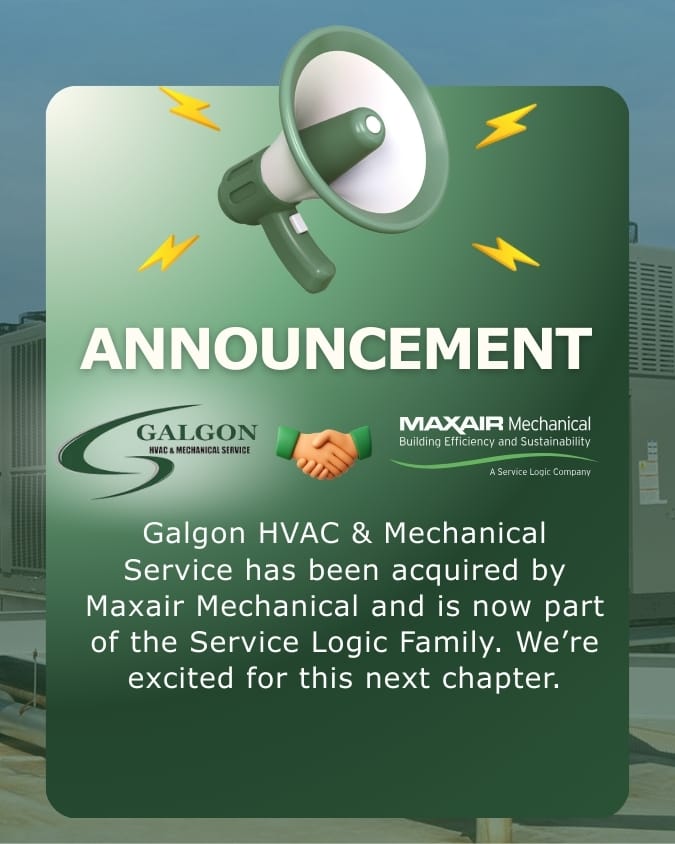In the quest for sustainable and cost-effective energy solutions, geothermal HVAC systems are revolutionizing the way commercial buildings manage heating and cooling.
By tapping into the Earth’s stable underground temperatures, geothermal systems offer an eco-friendly alternative that can drastically reduce energy consumption and operational costs. In this guide, we’ll explore how commercial buildings can unlock significant energy savings by implementing geothermal HVAC technology.
From reduced carbon footprints to lower utility bills, discover the long-term benefits of making the switch to geothermal systems and how they can enhance both your building’s efficiency and environmental impact.
Geothermal HVAC: The Future of Efficient Home Climate Control
How Geothermal HVAC Works
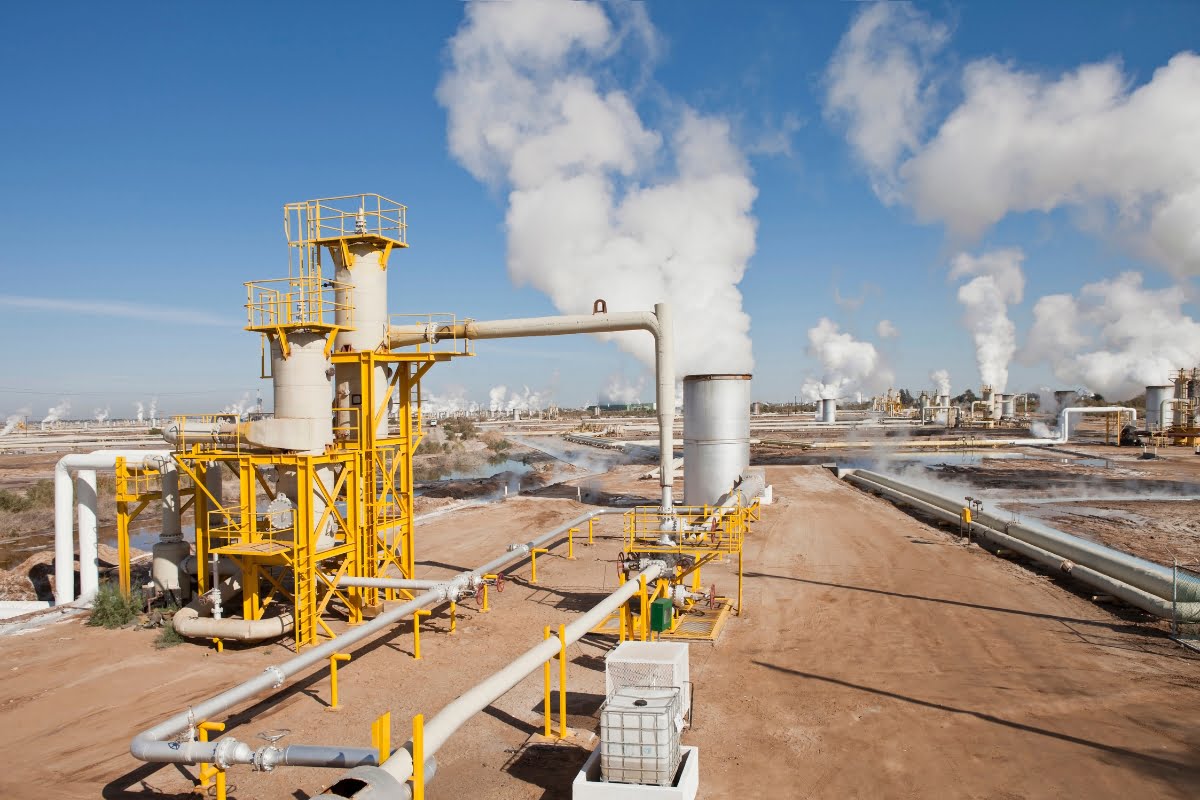
Harnessing the natural heat from the Earth, geothermal HVAC systems function to control indoor temperatures effectively. The system’s operation commences with the installation of a ground loop – a network of pipes buried beneath the surface. These pipes contain a blend of water and antifreeze that flows through the loop, extracting heat from the ground in the process.
As the fluid travels through the ground loop, it absorbs heat from the Earth and carries it to a geothermal heat pump located inside the building. The heat pump then extracts the heat from the fluid and transfers it to an air distribution system or a radiant floor heating system.
In summer months, when cooling is required, geothermal HVAC systems reverse this process. The system extracts heat from inside the building and transfers it to the ground loop, where it is absorbed by the Earth. The cooled air is then distributed throughout the building, providing a comfortable indoor environment.
This closed-loop system allows for efficient heating and cooling throughout the year, regardless of outdoor temperatures. By tapping into stable underground temperatures, geothermal heating and cooling systems can achieve remarkable energy savings compared to traditional heating and cooling methods.
Benefits of Geothermal HVAC for Commercial Buildings
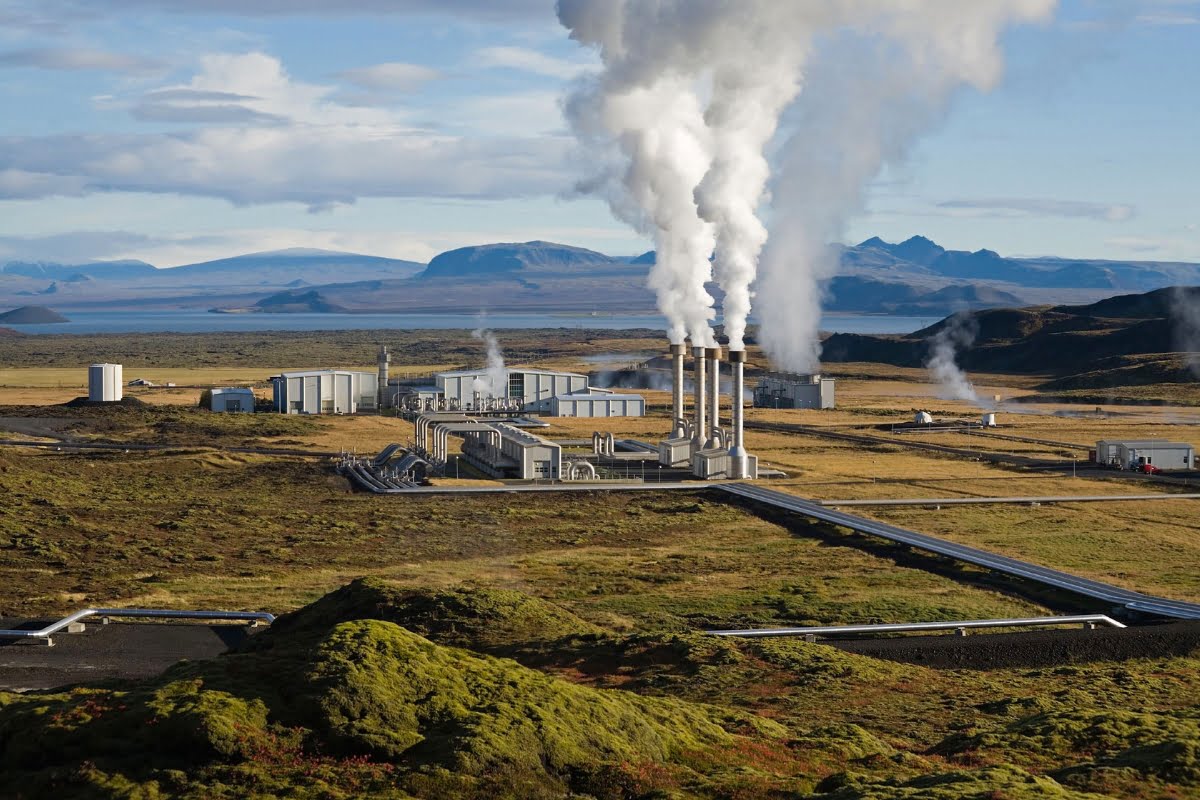
The adoption of geothermal HVAC systems in commercial buildings offers numerous benefits for businesses seeking sustainable energy solutions. One of the primary advantages is significant cost savings on energy bills. Geothermal systems can reduce energy consumption by up to 70% compared to conventional HVAC systems, making them an attractive investment for long-term financial savings.
Additionally, geothermal HVAC systems have a longer lifespan than traditional systems. With proper maintenance, these systems can last up to 25 years for the indoor components and over 50 years for the ground loop. This longevity translates into reduced replacement costs over time, lowering the total cost of ownership and providing a substantial return on investment.
Another benefit is improved indoor air quality. Geothermal systems do not rely on combustion processes like fossil fuel-based systems, which means there are no emissions, pollutants, or combustion byproducts released into the air. This results in cleaner, healthier indoor environments, reducing the risk of respiratory issues and improving overall occupant well-being.
Moreover, geothermal HVAC systems are environmentally friendly, as they leverage the Earth’s natural energy, producing no greenhouse gases. This can help businesses meet sustainability goals and lower their carbon footprint.
These systems also provide excellent zoning capabilities, allowing for precise temperature control in different areas of a building. This zoning feature can lead to increased comfort for occupants and reduced energy waste by only heating or cooling occupied spaces, ultimately maximizing efficiency.
Environmental Impact of Geothermal Heating and Cooling Systems
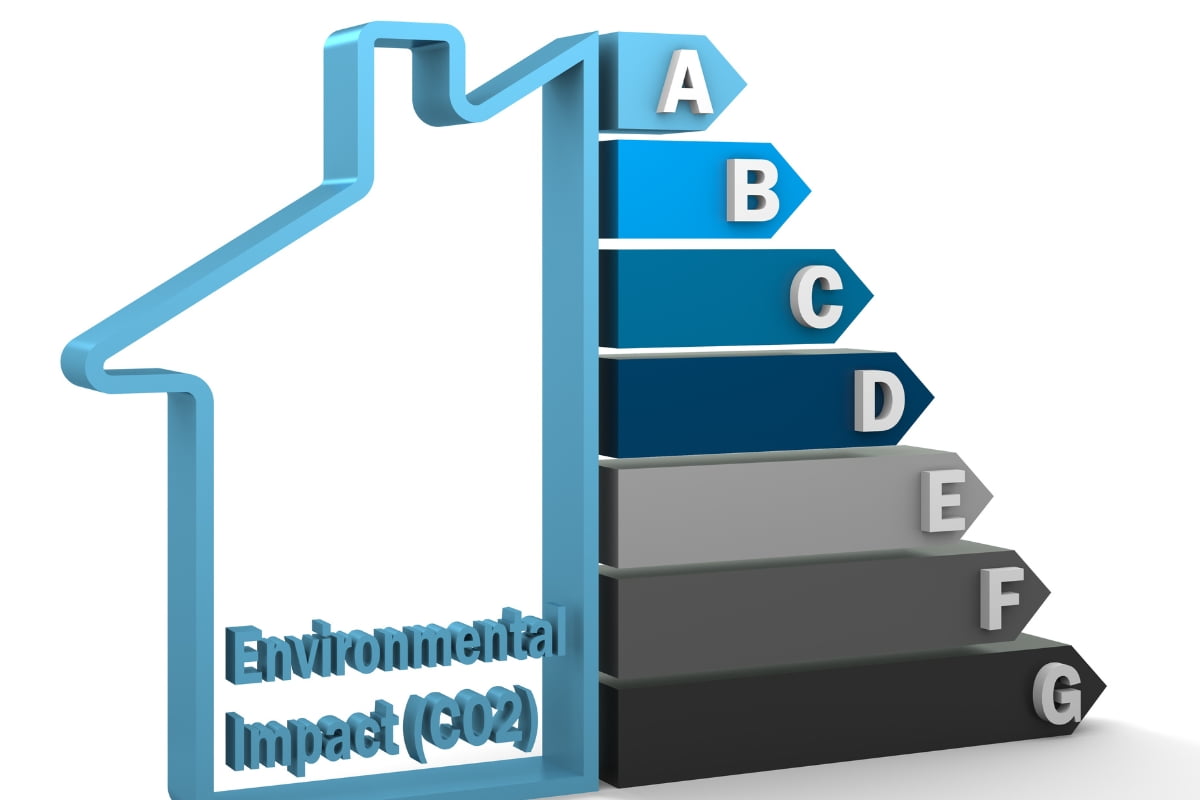
Geothermal HVAC systems have a significantly lower environmental impact compared to traditional heating and cooling methods. By utilizing the Earth’s natural heat, these systems reduce greenhouse gas emissions and reliance on fossil fuels, making them a sustainable alternative for eco-conscious businesses and homeowners.
The reduction in greenhouse gas emissions is substantial. Geothermal HVAC systems can reduce carbon dioxide emissions by up to 40% compared to conventional systems. This reduction plays a crucial role in mitigating climate change and preserving the environment for future generations. Additionally, because these systems draw heat from the ground rather than generating it through combustion, they help reduce the overall demand for electricity from fossil fuel-based power plants, further lowering the carbon footprint.
In addition to reducing carbon dioxide emissions, geothermal HVAC systems also eliminate the need for on-site combustion processes, such as burning natural gas or oil.
This not only eliminates the release of harmful pollutants like nitrogen oxides, sulfur dioxide, and particulate matter into the atmosphere but also minimizes the risk of hazardous leaks or explosions associated with traditional fuel-based systems. As a result, geothermal systems contribute to cleaner air quality both indoors and outdoors, promoting healthier living and working environments.
Furthermore, geothermal systems have minimal impact on the surrounding landscape since the ground loops are installed underground, preserving the natural beauty of the area without requiring large, noisy equipment above ground. This makes geothermal HVAC an ideal solution for properties looking to maintain aesthetic appeal while prioritizing sustainability.
Cost Savings of Geothermal HVAC Compared to Traditional Systems

While geothermal HVAC systems may have higher upfront costs compared to traditional systems, they offer significant long-term cost savings. The energy efficiency of geothermal systems leads to lower utility bills, resulting in substantial savings over time.
In fact, geothermal systems can reduce energy consumption by up to 50-70% for heating and cooling, translating into noticeable financial benefits for both residential and commercial property owners.
The exact amount of savings will depend on factors such as the size of the building, local energy rates, and climate conditions. However, studies have shown that businesses can expect a return on investment within 5-10 years with geothermal HVAC systems, with continued savings thereafter. In areas with high energy costs or extreme weather conditions, the payback period may be even shorter, making geothermal an attractive option in these regions.
In addition to energy savings, geothermal HVAC systems require less maintenance compared to traditional systems. The absence of outdoor units exposed to harsh weather conditions reduces the need for regular repairs and replacements, further reducing long-term costs.
Geothermal systems have fewer mechanical components and are largely installed underground, which protects them from damage due to weather, debris, or vandalism. This leads to fewer breakdowns and lower ongoing maintenance expenses.
Moreover, the longer lifespan of geothermal systems means fewer replacements and lower lifetime costs. Combining energy savings, reduced maintenance, and longer durability, geothermal HVAC systems offer a highly cost-effective solution in the long run.
Installation Process and Considerations for Commercial Properties
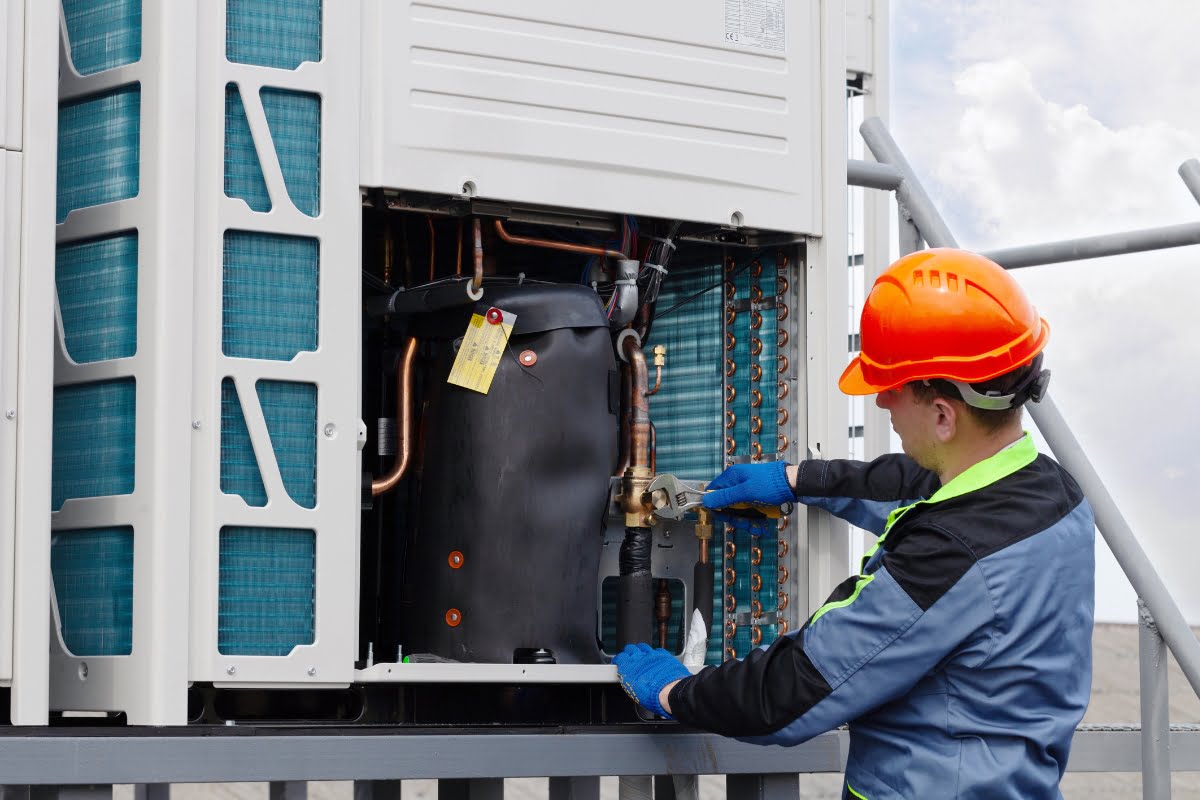
The installation process of geothermal HVAC systems in commercial properties requires careful planning and consideration. It is essential to work with experienced professionals who understand the unique requirements of geothermal systems.
The first step is conducting a thorough site assessment to determine the feasibility of installing a geothermal system. Factors such as soil conditions, available land area, and local regulations need to be considered during this assessment.
Once the site assessment is complete, the next step involves designing the ground loop system. The design will depend on factors such as building size, heating and cooling load requirements, and available land area. Proper sizing and design are crucial for optimal system performance.
After the design phase, the installation process begins with excavating trenches or drilling boreholes for the ground loop pipes. The pipes are then installed in a closed-loop configuration and connected to the geothermal heat pump inside the building.
It’s important to note that installation costs can vary depending on factors such as site conditions, system size, and complexity. However, government incentives and rebates are often available to help offset these costs (more on this later).
Maintenance and Longevity of Geothermal HVAC Systems
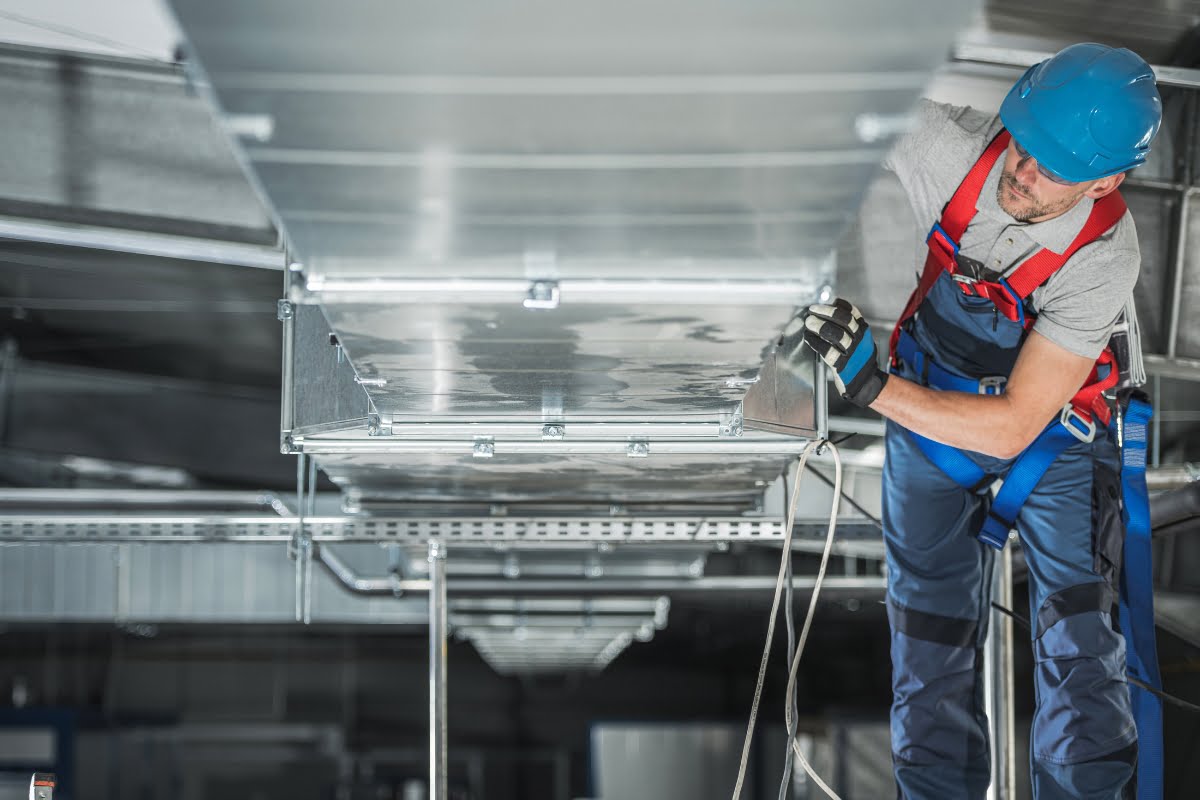
Maintaining a geothermal HVAC system is relatively straightforward compared to traditional systems. Regular maintenance includes checking fluid levels, inspecting electrical connections, cleaning filters, and ensuring proper airflow.
In addition to routine maintenance tasks that can be performed by building owners or facility managers, it’s recommended to schedule professional inspections at least once a year. These inspections will ensure that all components are functioning correctly and identify any potential issues before they become major problems.
With proper maintenance, geothermal HVAC systems can last for decades. The ground loop pipes are typically designed to last 50 years or more, while the heat pump and other components have an expected lifespan of 20-25 years.
Government Incentives and Rebates for Geothermal HVAC Adoption

The adoption of geothermal HVAC systems is encouraged by various government incentives and rebates. These financial incentives aim to promote the use of renewable energy sources and reduce greenhouse gas emissions.
Governments and utility companies recognize the long-term environmental and economic benefits of geothermal technology and offer programs to make installation more accessible.
Depending on your location, you may be eligible for federal tax credits, state-level incentives, or utility company rebates. In the U.S., the federal government offers a 26% federal tax credit for geothermal systems installed before the end of 2022, which drops slightly in subsequent years.
Some states offer additional incentives, such as rebates or grants, which can vary widely depending on local policies. Utility companies may also provide rebates for businesses or homeowners who switch to energy-efficient systems like geothermal HVAC.
These incentives can significantly offset the upfront costs of installing a geothermal HVAC system, making it a more affordable option for commercial properties. In some cases, these rebates can reduce installation costs by thousands of dollars, bringing the break-even point even closer.
It’s essential to research and understand the available incentives in your area before embarking on a geothermal HVAC project. Consulting with professionals who specialize in renewable energy systems can help navigate the incentive landscape and ensure you’re taking full advantage of available credits, grants, and rebates.
This proactive approach not only makes the system more affordable but also helps you maximize long-term savings.
Conclusion: Embracing Geothermal HVAC for Sustainable Energy Savings
Geothermal HVAC systems offer commercial buildings an opportunity to unlock significant energy savings while reducing their environmental impact. By harnessing the Earth’s natural heat, these systems provide efficient heating and cooling throughout the year.
Unlock significant energy savings and enhance the sustainability of your commercial building with geothermal HVAC solutions. To discover how Galgon HVAC & Mechanical Service can revolutionize your building’s energy efficiency, contact us at (404) 352-1500 or visit our website to fill out the form for a quote or a service request. Let us help you take your building’s HVAC system to the next level!

